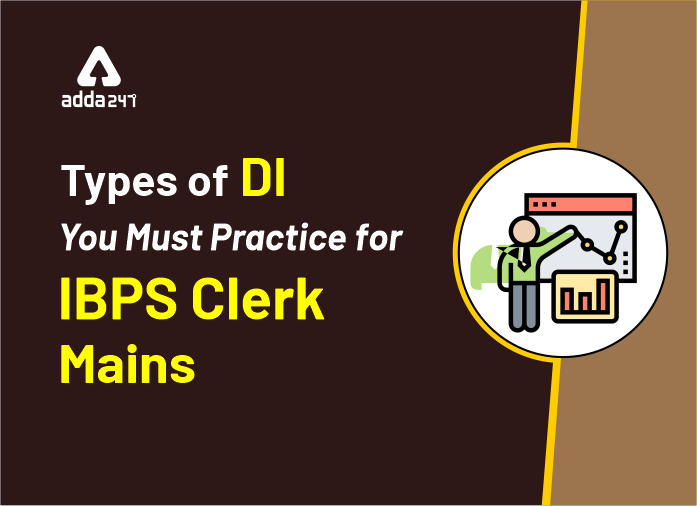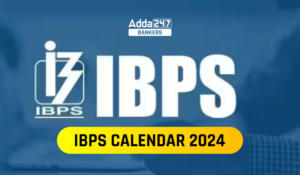Table of Contents
IBPS has already conducted IBPS Clerk Prelims Exam on 7th and 8th December 2019. IBPS will release the IBPS Clerk Prelims Result shortly. All the aspirant must check IBPS Clerk Prelims Exam Analysis to check their performance and good attempts and should start preparing for the next stage of the IBPS Clerk Recruitment. The next stage of IBPS Clerk Recruitment is IBPS Clerk Mains Exam which is scheduled to be held on 19th January 2019. IBPS Clerk Mains Preparation is the main concern for student nowadays. We have come up with a major section of Quant today to help you score well in Quantitative Aptitude of IBPS Clerk Mains Exam
IBPS Clerk Mains Exam has 4 sections in total: Quantitative Aptitude, Reasoning, English and General/ Financial Awareness. Candidates are advised to go through IBPS Clerk Exam Pattern and syllabus for the best result. IBPS Clerk Mains Exam Pattern is given below:
| Sr. No | Name of Tests | No. of
Questions |
Maximum
Marks |
Medium of Exam | Time allotted for each
test |
| 1 | General/ Financial Awareness | 50 | 50 | English & Hindi | 35 minutes |
| 2 | English Language | 40 | 40 | English | 35 minutes |
| 3 | Reasoning Ability & Computer Aptitude | 50 | 60 | English & Hindi | 45 minutes |
| 4 | Quantitative Aptitude | 50 | 50 | English & Hindi | 45 minutes |
| Total | 190 | 200 | 160 minutes |
Acing Data Interpretation (DI)
IBPS Clerk Mains Exam has 4 sections. Out of them Quantitative Aptitude carries 50 question with a total score of 50 marks and 45 minutes time slot. It has a higher weightage so should be given outmost importance. In Quantitative Aptitude, DI is the most scoring topic and our article is dedicated to help you in sailing through the Quant cut-off. Also, it has DI tips for Clerk Exam.
Importance of DI
- DI has the highest weightage in Quant. It carries a total of 8-10 marks.
- There is a sectional cut-off in IBPS Clerk Mains Exam and DI will fetch you marks easily.
- It is easy in comparison to other mind blogging topics like quadratic equations, Data Sufficiency etc.
IBPS Clerk Data Interpretation Preparation Tips
Data Interpretation demands analytical skills. Here are some IBPS Clerk Mains DI Tricks and Tips to score well in this topic of Quant:
Types of DI:
Tables, Pie-Chart, Bar Graph and Line Graph, etc are the types of DI that are asked in the examination.
Tables: Tables are the most convenient and versatile method to present data. Analyzing and drawing conclusions from tables is much easier than any other method. Tables are the fundamental method to represent data. In tables, the data is arranged in rows and columns which help us to scrutinize data efficiently
Pie chart: A Pie chart is a pictorial representation of data as part of a circle. The circle presents the total value and the different parts of the circle present certain portions of the data. There are two types of pie chart: Normal and Exploded
Bar graph: A bar graph is a way of representing data on the graph using X-axis and Y-axis. It is the most convenient way to present data. It is proven that using lengths in case of bar chart is a better indicator than pie charts where the data is categorized in terms of areas.
Line graph: Line graph is the simplified version of the normal bar graph. It is simple to draw conclusions from Line Graph.
DI Tips for Clerk Exam
- Practice at least 20 question of each type of DI.
- Try to attempt the questions of DI in less time.
- Work on your stats.
- DI increases your analytical skills, so try to focus more on building your ability to work on charts, tables, etc.
IBPS Clerk Data Interpretation Short Tricks
Here are some IBPS Clerk Mains DI Tricks:
- Understand the type of DI asked in the exam (Pie chart, table based, bar graph, line graph, radar graph or miscellaneous)
- The form data is to be understood than (Whether all given or some missing or mix form like use of percentage, exact values)
- Effective n attentive reading of all instructions
- Focus on calculation (fast and sometime no need to calculate exact value like in percentage question or ratio question)
- Sometimes it’s better to calculate/find answer using options as that saves time
You may also like to read:
Click Here to Register to Get Study Material for IBPS Clerk Mains Preparation
Click Here to Check IBPS Clerk Mains Test Series and Live Batches



 The Hindu Review October 2022: Download ...
The Hindu Review October 2022: Download ...
 IBPS Calendar 2024 Out, Download IBPS Ex...
IBPS Calendar 2024 Out, Download IBPS Ex...
 IBPS SO Final Result 2024 Out, Download ...
IBPS SO Final Result 2024 Out, Download ...



